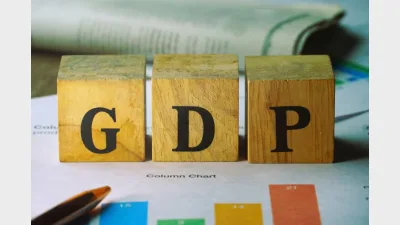Local pension market on track to become a global leader by 2030



As global pension assets hit record highs, Australia’s growth in the sector positions it to potentially overtake other nations in coming years.
The Australian market has experienced “phenomenal growth”, new research from the Thinking Ahead Institute has highlighted, with the size of assets increasing by nearly 500 per cent over the last two decades.
In fact, if Australia maintains its current growth trajectory, it could become the second largest pension market globally by 2030, the research hub noted in its latest Global Pension Assets Study.
Overall, global pension assets rose by 4.9 per cent year on year in 2024, reaching a record US$58.5 trillion.
According to the Thinking Ahead Institute, this was led by growth in the largest defined contribution (DC) markets – an area that Australia dominates in.
“While relatively little change in the ranking of these seven largest pension markets has occurred over the past 20 years, the growth in some regions, primarily those with larger DC markets, is far outstripping others,” the report said.
“Since 2014, the size of Australian pension assets has grown by 110 per cent in local currency, and the size of US pension assets has grown by 75 per cent. Both markets have a substantial skew towards DC pension funds, with 89 per cent of Australian assets and 69 per cent of US assets in DC plans.”
Looking at other P7 markets – also comprising Canada, Japan, the Netherlands, Switzerland, and the UK – only 5 per cent of pension assets in Japan were in DC plans, with this figure rising slightly to 7 per cent for the Netherlands.
Commenting on the data, Jessica Gao, director of the institute, said that it is markets with larger pools of DC assets that are the “main engine behind this continued growth”.
“As the size of these asset pools continues to increase, we are seeing increased influence by governments towards pension funds, primarily through regulation, which has expanded in line with both the size and growing significance of pensions in society. This has been particularly evident in countries such as Canada, Australia and the UK.”
Australia remains a leading equity allocator
Turning to asset allocation, the institute explained that, since 2004, equity allocations globally have shrunk from 57 per cent to an estimated 45 per cent. On the other hand, allocation to bonds increased from 29 per cent to an estimated 33 per cent.
However, Australia had the highest equity allocation out of the other P7 markets (52 per cent), followed by the US with a 50 per cent equity allocation.
Moreover, 14 per cent of Australia’s pension assets were in bonds in 2024, lower than any other P7 country, while 10 per cent was allocated to cash and 24 per cent to “other” investments.
A key trend the Thinking Ahead Institute observed globally over the past few decades, continued Gao, is the rotation from equities into alternative assets.
“The understanding of these specialist asset classes has also deepened considerably,” she explained.
“In the past, alternatives were grouped into a single category, but we now see a more granular approach being taken to these investments, with asset owners making distinct allocations of capital to the different asset classes such as private debt, commodities, liquid alternatives and infrastructure.”
Last year, data from the Thinking Ahead Institute also showed that Australia’s presence in the group of the world’s largest pension funds continued to grow in 2023, with 17 local funds featured in the top 300.
AustralianSuper remained the only fund in the top 20 and moved up two positions to rank 16th with US$204.63 billion in assets.
Recommended for you
Superannuation industry bodies have warned the prudential regulator that some of the more rigid proposals in its Governa...
IFM has firmly opposed any push for publicly disclosing current valuations of private market assets, saying it would “damage the financial interests of investors” and reduce appetite for infrastructure and private business investment.
Subdued GDP figures have bolstered expectations that the RBA could cut rates sooner and, possibly more aggressively, market watchers say.
Australian institutional investors plan to keep their finger on the pulse of private markets, new data has shown, with local investors aiming to further expand allocations into the sector.









